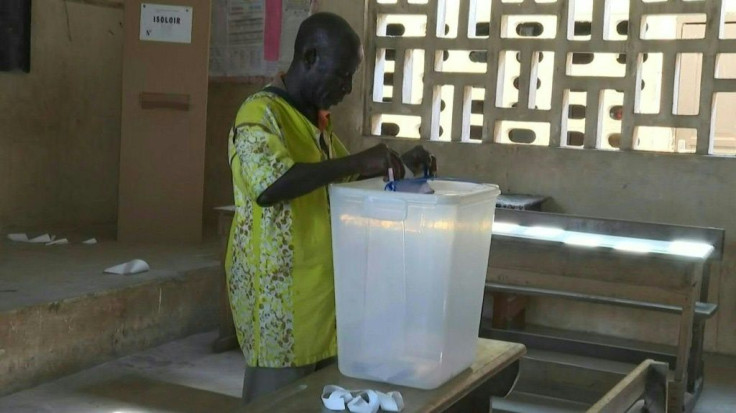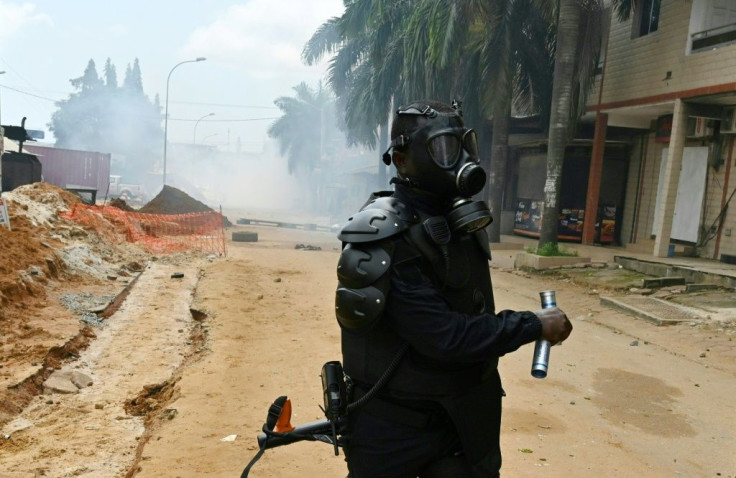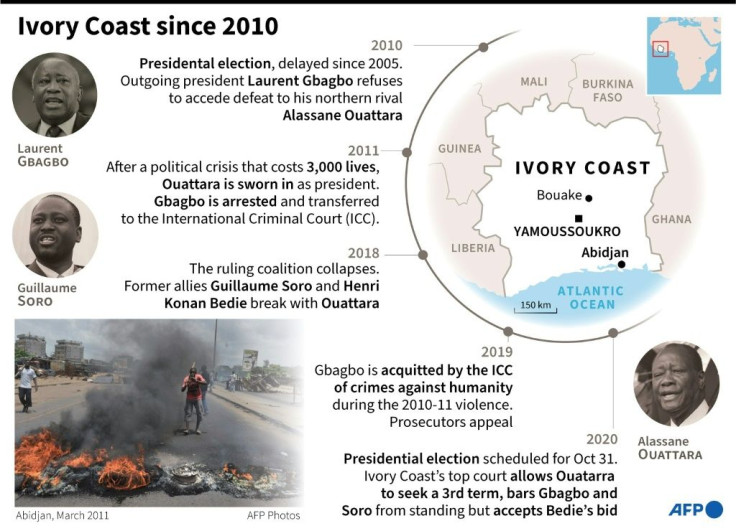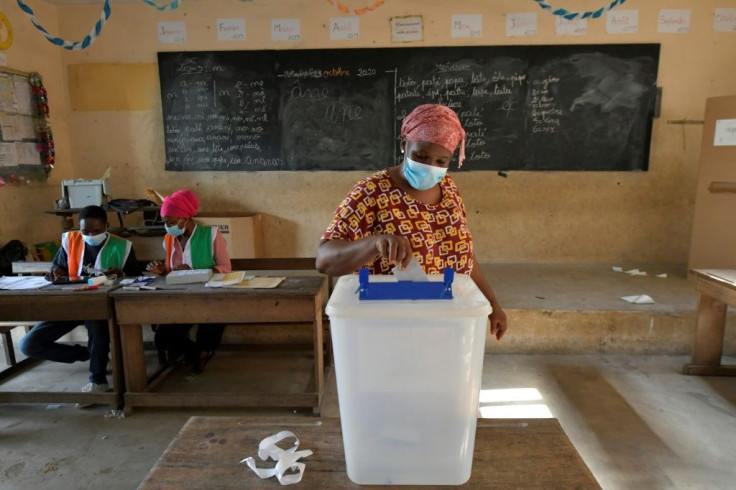Ivory Coast's Ouattara Seeks Third Term In Vote Hit By Unrest
Ivory Coast voted in a presidential election on Saturday with opposition leaders rejecting the ballot after a boycott and pockets of unrest against President Alassane Ouattara's attempt to secure a third term.
At least 30 people have been killed in pre-election clashes since August, stoking fears of a repeat of the 2010-2011 crisis that left 3,000 dead when then-president Laurent Gbagbo refused to accept defeat by Ouattara.

The Ivorian leader's decision to run again angered opponents who called for an "active" boycott and civil disobedience over a third mandate they branded an unconstitutional "electoral coup".
Ouattara appealed for calm on Saturday, but opposition candidates dismissed the vote as a failure and an exiled former rebel chief said he no longer recognised the Ivorian leader as president.

"I appeal to those who launched this slogan for civil disobedience which has led to deaths: Stop. Ivory Coast needs peace," Ouattara said after voting in the capital Abidjan.
Polls closed at 1800 GMT, though it was not clear when official results will be announced. Electoral law allows for up to five days for tallies to be released.

A former IMF economist in power since 2010, Ouattara is once again facing off against veteran opposition leader Henri Konan Bedie in a bitter rivalry that has marked the West African country's politics for decades.
"The electoral coup has been a failure. The Ivorian people succeeded in halting this election," opposition candidate Pascal Affi N'Guessan told a news conference at Bedie's residence.
Tweeting from exile, former rebel chief Guillaume Soro, who once gave Ouattara military backing in the 2010 crisis, told Ivorians to work towards removing Ouattara.

"I no longer recognise Ouattara as President of the Republic. People of Ivory Coast, we have no other option than to work to remove Ouattara," Soro wrote on Twitter.
The ballot in French-speaking West Africa's economic powerhouse is a crunch test in a region where Nigeria is emerging from widespread social protests, Mali faced a coup and jihadist violence wracks the Sahel.

Abidjan was mostly calm during voting, but police fired tear gas in the city's Blockhauss district to clear hundreds of youths who tried to disrupt voting.
Youths set up makeshift barricades in and around the central eastern town of Daoukro, a stronghold of Bedie, where polling stations remained closed.

In Bouadikro and Bongouanou, a stronghold of opposition leader N'Guessan north of Abidjan, polling stations were also closed.
Witnesses reported clashes between rival groups in Yopougon district in Abidjan and the central western town of Gboguhe.
There were no immediate confirmed reports of casualties during the day.
Ouattara, 78, had said he would step aside after his second term to make way for a younger generation, but the sudden death of his chosen successor led to a change of plan.
The Ivorian leader says a constitutional court ruling approved his third term, allowing him to bypass the country's two-term presidential limit after a 2016 legal reform.
His supporters expect a strong win, touting his record in bringing infrastructure projects, economic growth and stability to the world's top cocoa producer after a decade of instability.
"October 31 was not the deluge as the leaders of the opposition forecast," Adama Bictogo, one of the main officials of the ruling party, said after the election.
Bedie, 86, and other opposition leaders had accused the electoral commission and the constitutional court of favouring the government, making a fair and transparent vote impossible.
The weeks before the election saw sporadic clashes in the south of the country, mainly between local ethnic groups close to the opposition and Dioula communities seen as loyal to the president, himself a Muslim from the north.
The country's political feuds are often closely tied up with its leaders' ethnic identities and regional loyalties.
A decade ago, Ivory Coast was emerging from a civil war and the country was split in two, the north held by rebels and the south by forces of then president Gbagbo.
© Copyright AFP 2024. All rights reserved.





















